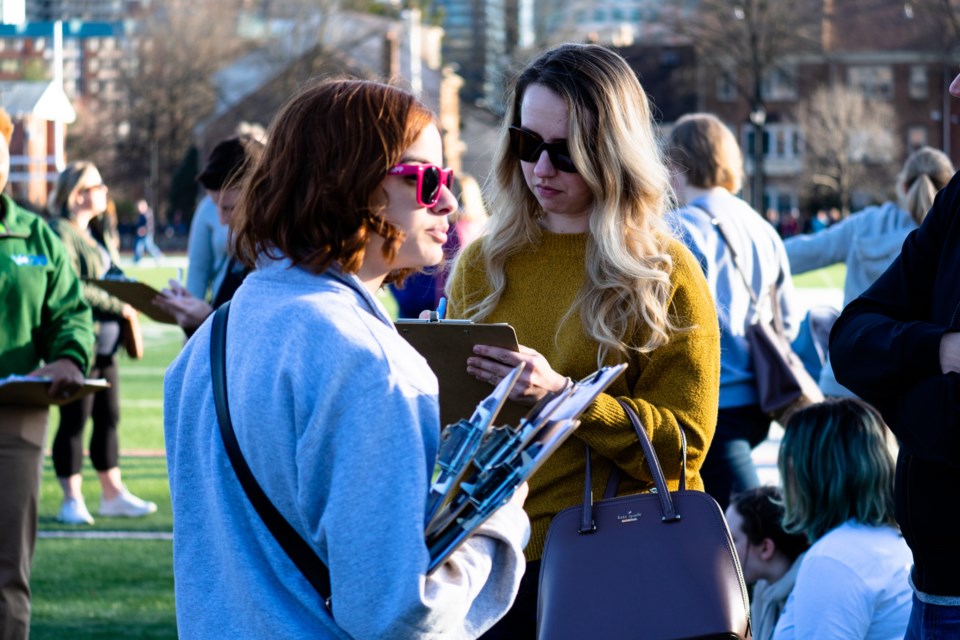It’s a question no one can really answer fully, or to the satisfaction of everyone: What is the role of a Member of the Legislative Assembly in a representative democracy like British Columbia?
There’s no job description to be an MLA. There’s no template. No one hands a new MLA a booklet that perfectly, completely, and realistically outlines their responsibilities.
Your “boss” is technically your party leader, but the ones who choose whether to re-up or fire you are the voters back home.
Some MLAs appear to flourish without these guidelines – think of the Littlefinger types who use chaos as a ladder. They become activists for specific causes, or experts in certain fields. Others become more like bureaucrats – think poor Ned Stark trying to manage the files for Robert Baratheon. A few become mad scientists, pushing wild ideas that will never go anywhere – the Qyburns. Others exercise influence mainly behind the scenes, like Lord Varys. Many are just, well, there – waiting for greatness to be thrust upon them, I suppose.
A whole field of study exists on how MLAs and MPs interpret, and thus perform, their roles. In 2014, former Conservative MP Brent Rathgeber wrote a book called Irresponsible Government. In it, he describes the struggle of the MLA to balance party, community, and principle:
I have participated in four elections and close to 20 election forums. In almost every one of these job auditions, the question is posed: "How will the candidate, if successful, vote on a matter of local importance, if the position of the constituents is different than the official position of the party under whose banner the candidate is running?"
Invariably, the answer offered, especially by neophyte candidates, is, “Of course I will stand up for my local constituents.” Incumbent candidates and those with more experience will offer a more nuanced answer, such as “it depends on the issue,” or “you have to pick your battles and your hill to die on.”
The truthful answer should probably be something along the lines of “I will support the party position and thereafter attempt to persuade you of the correctness of that position, because if I stray from the party position, I will be out of the caucus and off the team and I can do more for you inside the caucus than I can from outside the tent.”
In short, MLAs often struggle with whether they are representing their community in government, or representing government (and their party) in their community.
Which bring us to the curious case of Renee Merrifield, and a petition she presented to the Legislature last week. The first-term BC Liberal MLA, and soon-to-be candidate for the leadership of her party, handed in an anti-masking petition signed by 4,500 British Columbians. She did not sign it herself.
Ideally, Merrifield would have rose in the House (and tweeted just beforehand) and made it clear that she was presenting a petition that she didn’t agree with. Basically, speeding up by a few hours this tweet she put out later that day:
“FTR, I have always supported wearing masks to prevent spread of Covid19 & all other health orders. Petitions from constituents are presented in the BC Legislature daily. As an elected official it is my role to present petitions from my constituents when they request it… Today, I presented such a petition and while I disagree with the premise, I fulfilled my role, as their MLA, in the presentation.”
By the time her tweet came out, the NDP was already all over her (The NDP, for all their talk about gender equity, ironically have a vested interest in knocking the only woman out of the BC Liberal race). A few pundits jumped in too, although most coverage reflected Merrifield’s comments that she didn’t personally agree with the petition.
Those pundits and opponents seem to believe Merrifield should have just dumped the 4,500-name petition in the shredder, never letting it see the light of day – as if she should be the sole arbiter of deciding what opinion, shared by thousands, gets to the elected decisionmakers. But those 4,500 people have every right to have their voice heard in their provincial Legislature.
Anti-masking is not a position I agree with, but I believe those who do have a right to express it to the 87 men and women elected in this province to represent British Columbians. Now the MLAs have the petition and can choose to act on it as they see fit (Spoiler alert: they’ll never give it another moment of thought, except when politically expedient for the NDP to attack Merrifield again). This was not a private member’s bill or a motion; it was simply Merrifield relaying the wishes of 4,500 British Columbians.
Merrifield’s mistake was in not vaccinating herself against this criticism by explaining her thinking ahead of time. But presenting the petition was the right thing to do in our representative democracy.
Jordan Bateman has a long history of public policy work, championing small business and fiscal responsibility. Currently the Vice President, Communications & Marketing for the Independent Contractors and Business Association (ICBA), Jordan also served six years as the B.C. Director of the Canadian Taxpayers Federation, and was a two-term Langley Township Councillor.
SWIM ON:
- Jordan Bateman last wrote about how much his own views have evolved in 10 years - and likely yours have to - so why is it so hard to imagine Kevin Falcon would be any different?
- Normally better known for knock-down, drag-out political brawling, recently the BC Legislature also saw one incredibly respectful debate. Rob Shaw on an all-too-unusual exchange.
- Corporations and their staff cannot know everything, and should avoid banning free expression and robust debates, argues Mark Milke.



